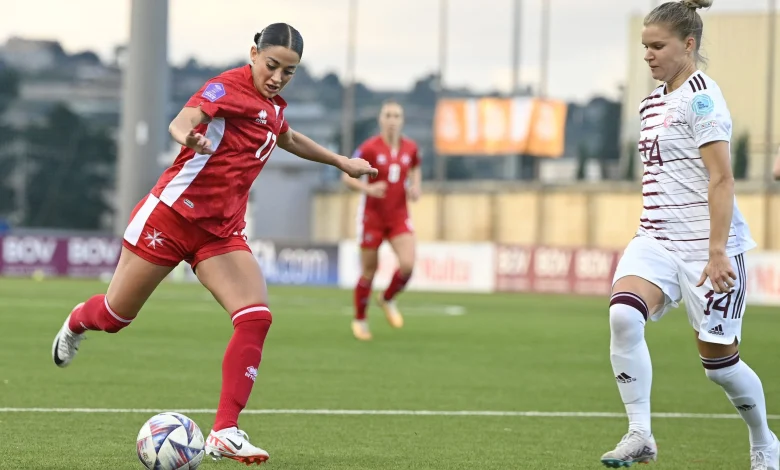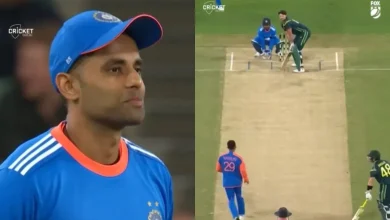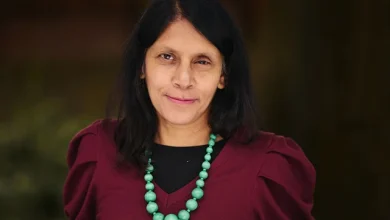Malta is slowly kicking football inequality to the side, says leading national player

Brenda Borg stands at the heart of Malta’s growing women’s football movement. A national team footballer, Borg’s experience on and off the pitch reflects the country’s rapid progress in gender-inclusive sport.
Speaking to Euractiv, she discusses the stereotypes that persist in Maltese football, the progress she has seen among young girls entering the sport, and the practical changes the TARGET project is driving in coach education and community outreach.
EV: TARGET aims to strengthen coach education by integrating STEM ideas and confidence-building. How have you seen this influence training in Malta and the way young players think on the pitch?
BB: TARGET focuses strongly on giving coaches practical tools. One element is using simple STEM ideas in training – basic measurement, observation and small data tasks that help players understand the why, not only the what.
Coaches might track passing under pressure, shooting accuracy from different distances, or sprint times over several weeks. When players see these numbers, they start analysing and problem-solving instead of just copying instructions. It’s not a maths class; it’s about developing sharper thinking on the pitch.
Another element is confidence-building. Coaches learn to give specific, positive feedback, to remove gendered expectations and to give girls more leadership roles – leading warm-ups, proposing tactics or explaining ideas to teammates. This is very different from the older, top-down coaching style.
From what I see, young players now communicate more, question more and reflect more on their performances. Girls, in particular, are becoming more assertive and less afraid of making mistakes. That shift in mindset is exactly what TARGET aims for.
EV: Malta is progressing, but stereotypes still exist in sport. What are the most common ones you notice, and how is TARGET helping to challenge them?
BB: Some assumptions linger, even if unspoken. There is still the idea that boys are naturally more physical or tactical, while girls are expected to be less intense. You hear comments like “For a girl, she is strong”, which already sets a lower baseline.
I often hear, “You don’t look boyish for a girl who plays football.” It sounds harmless, but it reinforces the belief that football is not naturally linked to girls, and that we must fit a certain image to “belong”.
TARGET tackles this by helping coaches recognise their language and by promoting mixed activities where girls and boys share responsibility.
Coaches rotate positions more fairly, give girls captaincy or set-piece duty, and highlight female role models. When girls take central roles and teammates are guided to respect that, stereotypes fade quickly.
EV: Malta has hosted several TARGET events. How important is visibility – events, festivals, social media – in encouraging girls to join football?
BB: Visibility is crucial, especially in Malta’s close-knit environment. When girls see others playing on beaches, in festivals or on social media, it sends a powerful message: “This sport is for you.”
Under TARGET, Malta hosted the women’s beach soccer festival in 2024, where 72 participants played together under a gender-equality framework. These events matter not only for those attending but also for those watching.
Initiatives like the UEFA-Disney Playmakers programme have introduced hundreds of young girls to football through fun, story-based sessions. When these activities appear on Instagram, Facebook or TikTok, they reach girls who might never have considered joining. For many, the biggest fear is being “the only one” or being judged. Visibility removes that barrier.
EV: What indicators are being used in Malta to measure progress under TARGET, and what changes have you personally noticed?
BB: Participation and retention are key indicators – how many girls join and how many stay. Coach development also matters – [seeing] how many attend TARGET workshops or how their attitudes shift, usually measured through surveys. Visibility and engagement at festivals and online campaigns are also monitored.
For me, the biggest indicator is the change I have seen over my own career. I have been playing with Mgarr United since I was 11, representing Malta at the national team level since I was 13. The number of girls involved – and the number who stay – has grown significantly. Younger age groups are forming, and more girls are continuing beyond the usual dropout ages.
There is also a clear shift in how people talk about women’s football. There is more respect, less surprise, and more recognition that girls can be technical, strong and competitive. Progress is gradual, but real.
EV: How can TARGET’s inclusive approach become a permanent part of Maltese football, and what challenges remain?
BB: TARGET cannot remain a temporary project; it needs to be part of the system. That means embedding its principles directly into coach education at the Malta FA, so every license includes modules on gender equality and player-centred methods.
Clubs should meet clear standards: fair access to pitches, proper training times for girls’ teams and visible female representation in coaching and leadership. Programmes launched under TARGET should become regular yearly activities, not one-offs.
The main challenges are cultural and structural. Some still see women’s football as secondary. Resources are also uneven, with fewer facilities and less media space for the women’s game. Long-term investment, consistent coach education and sustained visibility campaigns are essential to changing this.
EV: Finally, what would you tell young girls in Malta who dream of playing football?
BB: I would tell them that their dream is entirely valid. Football is not a boy’s sport; you are borrowing it – it belongs to you, too. You do not need to look or behave a certain way to fit in. If playing football makes you happy, then you have every right to pursue it.
My message is simple: take the first step. Join a session, try training, bring a friend if you need to. If someone tells you football isn’t for you, use it as motivation, not a reason to walk away. Being “different” can become your strength – and the identity you proudly carry for life.
(BM)





